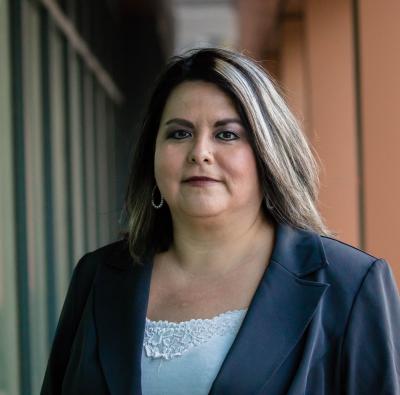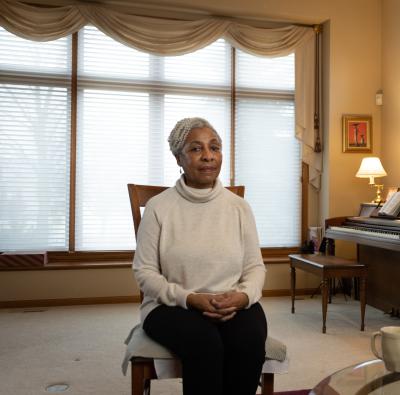The 2024 presidential election did not end in the early hours of November 6, when major news networks called the race for President-elect Donald Trump. Instead, the full process actually ended on January 6, when Congress officially counted each state’s electoral votes.
Our democracy includes a comprehensive set of checks and balances to ensure all...
When the new Congress is sworn in on January 3, its members must immediately vote to decide whether they want to be subject to effective ethics enforcement by the Office of Congressional Ethics (OCE).
The OCE serves an essential role in democracy by providing independent, nonpartisan oversight of the House of Representatives, safeguarding it...
President Biden has announced his support for a ban on congressional stock trading a few weeks before new members of Congress are sworn in with high levels of stock ownership that are already drawing concerns about the potential for conflicts of interest.
Campaign Legal Center (CLC) completed a review of the personal financial disclosure reports...
Have you ever wondered why just a handful of states seem to determine the outcome of the presidential election?
The answer is simple: In the United States, we use a process known as the Electoral College to elect our president. Whoever gets the most votes for president across the country does not necessarily win the presidency; instead, a...
President-elect Donald Trump has revived efforts on one of his most controversial executive orders from his first term.
The creation of Schedule F, reversed by the Biden administration before it could be implemented, would pave the way for Trump to fire thousands of career civil servants and replace them with loyalists.
These federal employees, who...
Voters have a right to know that government officials are working for the public, not wealthy special interests.
For over 50 years, state ethics commissions have been critical to our democracy by ensuring officials adhere to high ethical standards to preserve public trust in government.
Their role in implementing and enforcing lobbying, conflicts...
Voters have a right to know who is spending money to influence their vote and our government. Transparency is necessary to understand who is supporting which candidates so that voters can make informed choices at the ballot box.
That’s why federal law requires candidates and committees to disclose their contributors.
But wealthy special interests...
President-elect Donald Trump may attempt to have the U.S. Senate confirm his political nominees without a complete investigation into their financial holdings and potential conflicts of interest.
This ethics investigation, conducted by the Office of Government Ethics (OGE), is a legal requirement and an indispensable part of our system of checks and...
President-elect Donald Trump’s transition team has submitted an ethics pledge that does not require Trump to address the potential conflicts of interest that may impact his decisions during his second term.
By doing so, Trump is skipping a key part of upholding transparency and accountability for the executive branch. Even before a new...
Parts of Missouri’s anti-voter law H.B. 1878 will remain permanently blocked after a judge issued an order in late November. The ruling permanently blocks the enforcement of several provisions of Missouri’s H.B. 1878, which criminalized certain voter engagement activities and assistance with absentee ballot applications conducted by civic...
The House Ethics Committee produced a report on its investigation into former Rep. Matt Gaetz that has yet to be publicized because he immediately resigned from his role in Congress after President-elect Donald Trump nominated him to serve as U.S. attorney general.
While politics may influence whether the House Ethics Committee releases information...
Valencia Richardson is Legal Counsel for Campaign Legal Center (CLC). In her work, Valencia focuses on combatting the effects of voter suppression in a post-Shelby County landscape in the Deep South.
Recently, she was honored by Equal Justice Works (EJW) which shined a light on her career since becoming an EJW Fellow in 2020. Throughout her tenure...
Voters have a right to know how candidates are spending their campaign funds, which is vital both to holding candidates accountable and making informed decisions at the ballot box.
That’s why candidates and committees must file periodic reports that publicly disclose all their financial activity — including details on how they are spending their...
After public outcry from elected officials and voters, both liberal and conservative, former Rep. Matt Gaetz withdrew his name from consideration to be nominated attorney general of the United States.
The bipartisan House Ethics Committee was investigating Gaetz for allegations of sexual misconduct and illicit drug use before President-elect...
When President-elect Trump first assumed office in 2017, he publicly vowed not to let his millions of dollars of personal interest conflict with his duties as president.
He appeared to genuinely follow through with this pledge, handing over control of his real estate company to his sons and selling off his stock shares prior to beginning his 2016...
The U.S. House of Representatives voted to pass H.R. 9495, dangerous legislation that would give President-elect Donald Trump and his secretary of the Treasury unmitigated power to weaponize the IRS and shut down any tax-exempt organization the administration falsely accuses of wrongdoing.
🧵Today, the U.S. House of Representatives voted to pass #HR...
In a highly unprecedented move, President-elect Donald Trump is holding up the presidential transition process by refusing to provide the legally required ethics pledge.
The Presidential Transition Act requires the president-elect to sign an ethics agreement that applies to everyone on the transition team and includes a pledge vowing to avoid...
Each new administration has the power to nominate policymakers and leaders who will help the president execute the goals the American people elected them to put forth. No matter their political allegiance, these appointees are public servants who should be beholden to the highest ethical standards that ensure they will work to advance the public...
The 2024 election is over, and the country now looks to a second term with Donald Trump as president.
Though Trump has cited anti-democratic ideals as part of his agenda, his election does not mean voters support him attempting to dismantle democracy.
The president is not a king or a dictator, and CLC stands ready to hold his administration...
Sometimes democracy produces a result that threatens democracy itself, but we can hold fast to the fact that our system worked. By all accounts, America had yet another secure election.
We are grateful to the thousands of election workers across the country who worked hard, and are still working hard, to count every vote.
While all Americans have...
On Election Day, millions of Americans fulfill their civic duty to vote. Millions more will have already cast their ballot, either early or by mail, before Election Day. It may take a while – from a few days to a few weeks – to count all those ballots, but we need to be patient for our democracy to work for all of us.
A hallmark of our democracy is...

